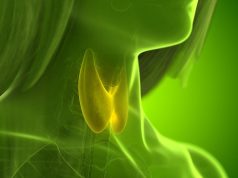Estimated mortality hazard ratio 1.43 per 10 µg/m³ increment increase in annual PM2.5 exposure
MONDAY, Dec. 9, 2019 (HealthDay News) — Exposure to air pollution is associated with increased mortality risk after heart transplantation, according to a study published in the Dec. 17 issue of the Journal of the American College of Cardiology.
Sadeer G. Al-Kindi, M.D., from the Harrington Heart and Vascular Institute at University Hospitals in Cleveland, and colleagues examined the association between ambient air pollution and mortality using linked mortality data for patients who underwent heart transplantation (2004 to 2015) in the United Network for Organ Sharing database with validated estimates of fine particulate matter concentration (particles with a diameter <2.5 µm [PM2.5]). Data were included for 21,800 patients with 86,713 patient-years of follow-up.
The researchers found that 23.9 percent of patients had died at a median follow-up of 4.8 years. Per 10 µg/m³ increment increase in annual PM2.5 exposure, the estimated mortality hazard ratio was 1.43. The association persisted after adjustment for 30 recipient, donor, and neighborhood variables, with an estimated mortality hazard ratio of 1.26 per 10 µg/m³ increment increase in annual PM2.5 exposure. Across subgroups, the association was consistent.
“Our results suggest an important influence of a key environmental factor in outcomes following heart transplantation and support the need for further studies in this population,” the authors write.
Copyright © 2019 HealthDay. All rights reserved.








